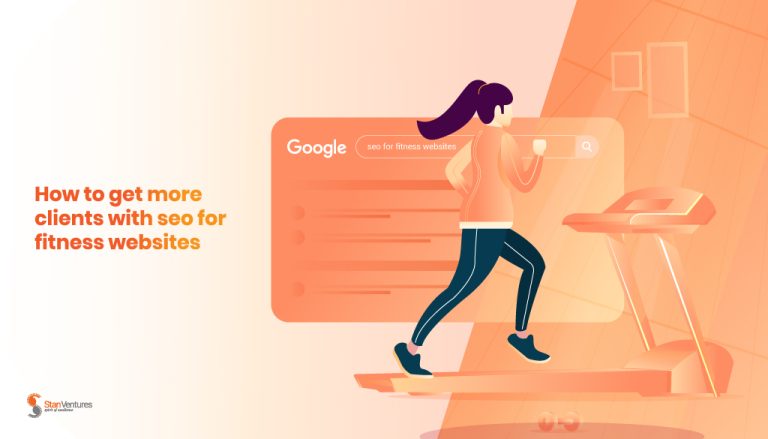What You Need to Know About Seo for Insurance Companies
SEO for insurance companies enhances online visibility and drives potential clients to their websites. It involves optimizing content and website structure to rank higher on search engine results.
Navigating the world of search engine optimization (SEO) can be challenging for insurance firms, but mastering it is essential for thriving in the digital marketplace. Today, clients turn to search engines like Google to find the best insurance options available.
To capture this audience, an insurance company needs a robust SEO strategy that targets relevant keywords and phrases associated with its services. This includes crafting quality content that addresses consumer inquiries, optimizing on-site elements such as meta tags and descriptions, and engaging in off-site SEO practices like building credible backlinks. By doing so, insurance businesses can improve their search engine rankings, which directly correlates with increased website traffic and, ultimately, more conversions into policy sales. Success in SEO demands staying current with the latest trends and algorithm updates while consistently delivering value to users.
What Is Seo For Insurance Companies
In the highly competitive insurance market, establishing a robust online presence is critical. This is where Search Engine Optimization (SEO) for insurance companies comes into play. SEO is the art and science of tailoring both on-page and off-page elements of a website to improve its visibility and ranking on search engines like Google. For insurance providers, it means optimizing their digital content to attract and engage more potential customers who are seeking insurance solutions online.
Understanding The Basics Of Seo For Insurance
The foundation of any successful SEO strategy starts with understanding the core components:
- Keywords: These are terms and phrases that prospects use when searching for insurance services. Identifying the right keywords is crucial for attracting relevant traffic.
- Content: High-quality, informative content that addresses audience questions and concerns helps to establish authority and trust.
- On-page SEO: This encompasses optimizing individual web pages, including meta tags, headings, and images, to rank higher and earn more relevant traffic.
- Off-page SEO: Activities outside the boundaries of the webpage, such as link building and social media marketing, contribute to a site’s authority and ranking.
- Technical SEO: Ensuring a website’s technical framework, such as site speed and mobile-responsiveness, meets the search engines’ guidelines.
Importance Of Seo For Insurance Companies
Why does SEO matter so much for insurance firms? The reasons are quite clear and compelling:
- SEO drives organic traffic to a company’s site, which is often high-quality and more likely to convert into leads.
- Improving online visibility helps a company stand out in a crowded marketplace, increasing brand recognition and trust.
- Customers tend to trust companies that appear on the first page of search engine results, and SEO helps in securing these coveted spots.
- Local SEO helps businesses attract nearby clients, which is essential for many insurance agencies focusing on local markets.
- SEO provides valuable insights into customer behavior, trends, and changing market dynamics through analytics and data monitoring.
- It is a cost-effective marketing strategy with long-term benefits, unlike paid advertising which stops generating results once the budget is exhausted.
Key Factors In Insurance Seo Strategy
An insurance company’s SEO strategy should be comprehensive, incorporating various elements:
| SEO Aspect | Importance |
|---|---|
| Local SEO | Essential for targeting audiences in specific geographic areas. |
| User Experience (UX) | Crucial for keeping visitors engaged, thereby affecting rankings. |
| Link Building | Increases site authority by acquiring backlinks from reputable sources. |
| Content Marketing | Drives engagement and positions the company as an industry leader. |
| Mobile Optimization | Increases accessibility for users on mobile devices, improving rankings and user experience. |
Deploying a well-structured SEO campaign positions insurance companies to meet their prospects exactly where they are looking. By focusing on user intent, providing value through content, and maintaining a strong technical website framework, insurance companies can effectively enhance their digital visibility and grow their customer base.
:max_bytes(150000):strip_icc()/how-car-insurance-companies-value-cars.asp-final-e3fe7d12f1fc4cb9bef0d86ca31d28c4.jpg)
Credit: www.investopedia.com
Keywords Research For Insurance Seo
Embarking on an SEO journey for any insurance company implies stepping into a competitive digital landscape. At the core of a successful SEO strategy lies diligent Keywords Research for Insurance SEO. This process entails pinpointing the exact terms that potential clients are inputting into search engines. It’s not merely guesswork; it involves an analytical approach to comprehend market trends, customer behavior, and the language that resonates with your audience.
Identifying Relevant Keywords For Insurance
Finding the right keywords is pivotal for insurance companies to drive traffic to their websites. It starts with grasping the core services and products offered, and expands into understanding the needs and questions of the target audience. Keyword research tools and competitor analysis are invaluable in this discovery phase, offering insights into search volume and difficulty levels of terms. By crafting a list of these pertinent keywords, you can tailor your content to match what your audience is searching for.
- Search volume: The number of searches a keyword receives within a given time frame.
- Keyword difficulty: An estimate of how hard it will be to rank for a particular keyword.
- Competitor keywords: What terms your competitors are ranking for that you may be missing out on.
These factors combined will help in sculpting an SEO strategy that aligns with search demand.
Long-tail Keywords For Insurance Seo
Long-tail keywords often hold the key to highly targeted traffic and improved conversion rates. They consist of longer, more specific keyword phrases that searchers are more likely to use when they’re closer to a point-of-purchase or when they’re using voice search. For insurance companies, tapping into long-tail keywords means addressing specific queries such as “affordable family health insurance plans” or “comprehensive car insurance for new drivers.”
| Type of Insurance | Example Long-tail Keywords |
|---|---|
| Health Insurance | “affordable health insurance for freelancers” |
| Car Insurance | “best full coverage car insurance for experienced drivers” |
| Life Insurance | “term life insurance policy for young couples” |
By targeting long-tail keywords within your content, your insurance company can attract more qualified leads—those who are already in the decision-making phase of their buyer’s journey.
On-page Optimization For Insurance Websites
On-Page SEO is a cornerstone in the digital strategy for insurance companies. It involves tweaking and perfecting every aspect of your website to rank higher in search engine results. An insurance website must convey trust and expertise, as well as provide an exceptional user experience to encourage engagement. The following sections dive into key on-page optimization strategies that will propel your insurance website to the top of search engine rankings.
Optimizing Website Content For Insurance Seo
At the heart of on-page SEO for insurance websites lies the need for content that’s not only relevant to the user’s search intent but also optimized for search engines. Here are essential steps for optimizing your website’s content:
- Keyword Research: Identify the keywords and phrases that potential clients use to search for insurance services. Incorporate these keywords strategically throughout your website’s content.
- Meta Tags: Leverage meta titles and descriptions to include keywords and encourage users to click through to your site. Keep them concise and compelling.
- Header Tags: Use header tags (H1, H2, H3) to structure content effectively. Include keywords in headers to signal the importance of those terms.
- Internal Linking: Link to other pages on your website where relevant, using anchor text that includes keywords for further emphasis of your site’s theme.
- Image Optimization: Use descriptive, keyword-rich file names and alt text for images to boost their discoverability.
Importance Of High-quality Content For Insurance Websites
Content quality on your insurance website extends beyond mere keyword density. High-quality content is pivotal as it:
- Establishes your website as an authority in the insurance industry.
- Increases engagement and time spent on your site, which are positive signals to search engines.
- Encourages backlinks from reputable sites, enhancing your site’s credibility and search engine rankings.
- Ensures consistency in the message and builds trust with your audience.
Content should be structured in a way that guides a visitor through your website, leading them down the path to become a client. It must be clear, informative, and professionally presented to provide the best user experience.
Example Table of Different Content Types| Type of Content | Purpose | SEO Benefit |
|---|---|---|
| Blog Posts | Educational material relating to insurance topics | Engagement, Authority, Long-tail Keywords |
| Product Pages | Detail specific insurance products | Conversion Optimization, Keyword Targeting |
| Testimonials | Showcase customer satisfaction | Social Proof, Trust Building |
| FAQs | Address common customer questions | User Experience, Featured Snippets |
Off-page Optimization And Link Building For Insurance Seo
Off-page optimization is crucial for the digital visibility of insurance companies. It revolves around improving the perception of a website by search engines through factors outside of the actual site, such as backlinks, social media presence, and mentions on other websites. Here, link building stands out as a key strategy in off-page SEO. Insurance firms need to establish a robust network of quality backlinks to signal their authority and relevance to search engines. Let’s delve deeper into how insurance websites can solidify their off-page SEO.
Building A Strong Backlink Profile For Insurance Websites
A strong backlink profile is like a vote of confidence from other reputable sites. It not only helps in ranking higher on search engines but also brings valuable referral traffic to insurance websites. To build this profile:
- Create quality content that is authoritative and informative, prompting others to link back naturally.
- Engage in guest blogging on reputable industry platforms for exposure and quality backlinks.
- Monitor your backlinks regularly to ensure they come from credible sources and disavow any from unsavory sources.
Leveraging Local Seo For Insurance Companies
Local SEO makes insurance services visible to potential customers in their vicinity. Insurance companies can enhance their local SEO through:
- Claiming and optimizing their Google My Business listings with current information, services, and authentic client reviews.
- Generating local content that appeals to the community, such as blog posts on local events or insurance guidance for local regulations.
- Incorporating local keywords within their websites and content, helping to target clients in specific geographic areas.
- Ensuring their NAP (Name, Address, Phone Number) details are consistent across all online directories and listings.
Effectively harnessing off-page SEO and local SEO tactics can drive considerable improvements in an insurance company’s online presence, leading to increased trust, recognition, and ultimately, business growth.
Measuring And Improving Seo Performance For Insurance Companies
For insurance companies, the digital landscape is fiercely competitive, making a robust SEO strategy essential for standing out in search engine results. To ensure ongoing success, companies need tools to measure and improve their SEO efforts systematically. These insights help refine tactics, keep pace with industry changes, and ultimately drive more qualified traffic to your website. Below, we’ll delve into key metrics every insurance provider should monitor and explore strategies for continuous SEO improvement.
Understanding Key Seo Metrics For Insurance
SEO metrics act as a compass to guide your strategy. They help identify what’s working and reveal areas that need attention. Key performance indicators for insurance companies might include:
- Organic Traffic: The number of visitors coming to your site from search engines.
- Keyword Rankings: The position of your website’s pages in search engine result pages (SERPs) for targeted keywords.
- Bounce Rate: The percentage of visitors who navigate away from the site after viewing only one page, which can indicate relevancy and engagement.
- Conversion Rate: The percentage of visitors who take a desired action, such as filling in a quote form or contacting your agency.
- Page Load Time: How quickly your website loads, affecting user experience and SEO.
- Backlink Profile: The quantity and quality of other websites linking to your pages.
By monitoring these metrics, insurance marketers can gain a comprehensive view of their SEO effectiveness and adjust strategies where needed.
Implementing Continuous Improvement Strategies For Insurance Seo
Improvement is not a one-time task but an ongoing process. To maintain and enhance your online presence, continuous SEO improvement strategies are critical. Consider implementing the following:
- Analyze your keyword performance regularly and update your content to target the most relevant and high-traffic keywords.
- Conduct A/B testing for different page elements to improve user engagement and conversion rate.
- Stay updated with the latest SEO trends and algorithm updates to ensure your website complies with best practices.
- Regularly review your backlink profile and work on acquiring high-quality links from reputable sources.
- Use website analytics tools to track your SEO metrics and make data-driven decisions for improvements.
- Optimize your website’s technical elements, such as mobile-friendliness, HTTPS security, and schema markup.
Insurance companies that commit to these strategies and continually refine their SEO practices are more likely to see a steady increase in ranking, traffic, and conversions, staying ahead in the competitive marketplace.
Frequently Asked Questions Of What You Need To Know About Seo For Insurance Companies
Why Is Seo Crucial For Insurance Companies?
SEO helps insurance companies improve their online visibility. By optimizing their website, they appear higher in search results, attracting more potential clients.
What Are Key Seo Strategies For Insurers?
Insurers should focus on keyword research, high-quality content creation, and building a mobile-responsive website. Local SEO is also vital for targeting community-specific clients.
How Can Insurance Agencies Improve Local Seo?
Agencies can improve local SEO by claiming their Google My Business listing, gathering positive reviews, and ensuring consistent NAP (Name, Address, Phone Number) across directories.
What Role Does Content Play In Insurance Seo?
Content is king in SEO. For insurers, informative and trustworthy content positions them as industry leaders and helps attract and engage potential policyholders.
Conclusion
Embracing SEO is pivotal for insurance companies aiming to stand out online. It enhances visibility, driving more leads and conversions. Commit to a strategy that blends keywords with quality content. Stay ahead by regularly updating your SEO practices. Remember, a strong digital presence starts with solid SEO foundations.




